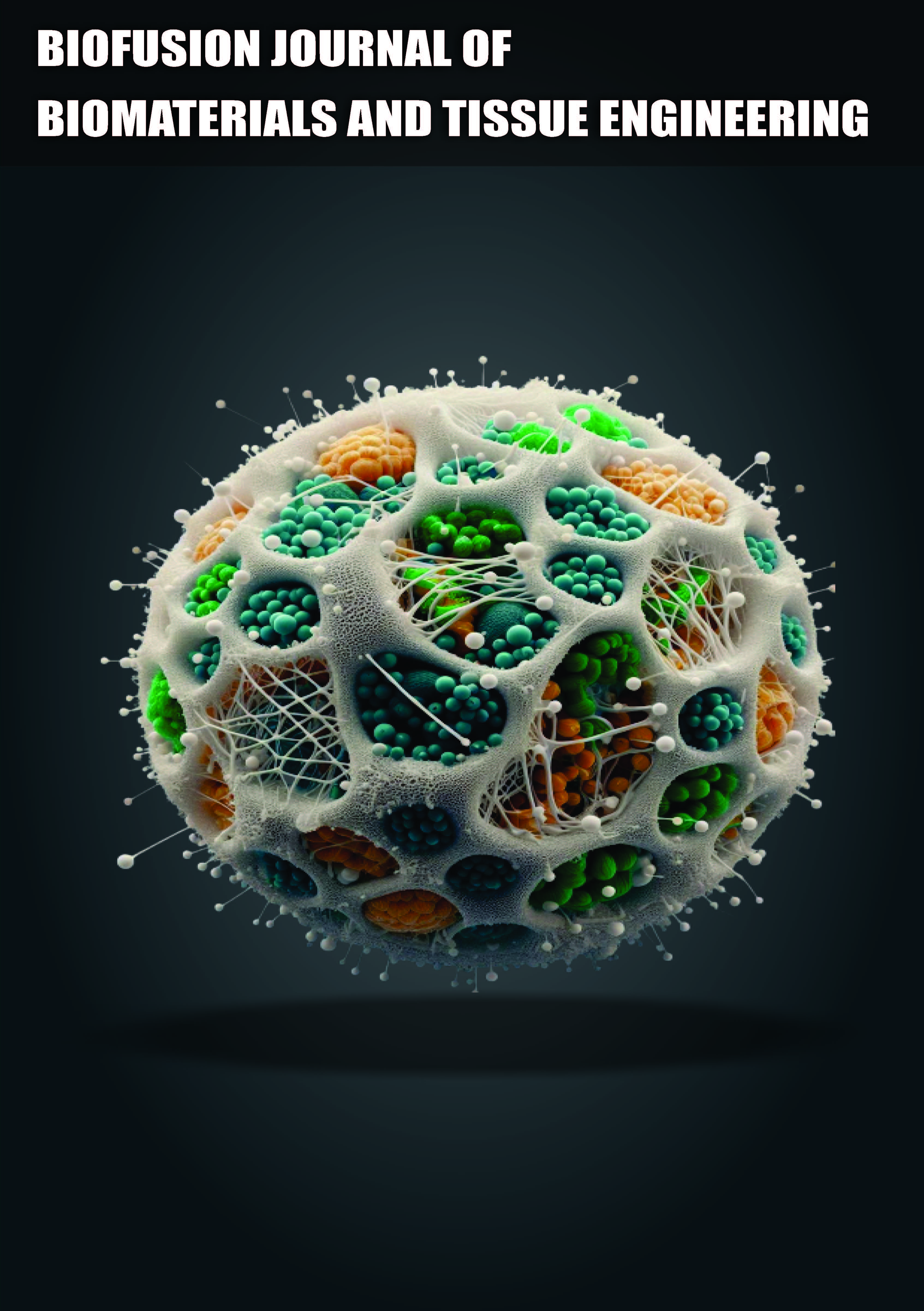BioFusion Journal of Biomaterials and Tissue Engineering

Instructions for Authors
BioFusion: Journal of Biomaterials and Tissue Engineering invites authors to submit original research articles, systematic reviews, short communications, case studies, and policy papers that align with the journal's focus on biomaterials and tissue engineering. To ensure that your manuscript is considered for publication, please follow the submission guidelines and format requirements carefully. Adherence to these guidelines will streamline the review process and facilitate a smooth submission experience.
Manuscript Submission:
Manuscripts must be submitted electronically via the journal's online submission system. Authors are required to create an account on the submission portal to upload their manuscripts and track the progress of their submissions. Only manuscripts in Microsoft Word format will be accepted for initial submission. Submissions in any other format will not be considered.
A cover letter must accompany every submission. The cover letter should outline the manuscript's significance, confirm that the work is original and has not been submitted or published elsewhere, and include a statement of any potential conflicts of interest. The cover letter should also confirm that all co-authors have approved the final version of the manuscript and agree to its submission to BioFusion.
Article Types:
BioFusion publishes the following types of articles:
Original Research Articles: Detailed research studies that present new and significant findings in biomaterials and tissue engineering.
Systematic Reviews and Meta-Analyses: Comprehensive reviews of the literature with critical analysis of current trends, challenges, and research gaps in the field.
Short Communications: Brief reports on novel, preliminary research findings.
Case Studies: Reports on unique cases related to the application of biomaterials and tissue engineering techniques.
Policy Papers: Articles that analyze and discuss the implications of health policies and regulatory aspects in biomaterials science and tissue engineering.
Manuscript Structure:
Manuscripts should be organized as follows:
Title Page: Include the title of the manuscript, full names of all authors, their affiliations, and corresponding author contact details, including email address.
Abstract: Provide a structured abstract of 150-250 words, summarizing the objectives, methods, key findings, and implications of the study.
Keywords: Provide 5-10 keywords that are relevant to the content of the article and will assist in indexing the article.
Introduction: The introduction should provide the background for the study, state the research question or hypothesis, and outline the significance of the research in the context of current literature.
Materials and Methods: Detail the experimental design, materials used, methods of data collection, and any statistical analyses employed.
Results: Present the key findings, including figures, tables, and charts that summarize the data. Ensure that the text clearly explains the results.
Discussion: Interpret the findings, highlight the implications of the study, compare the results with previous research, and discuss any limitations of the study.
Conclusion: Summarize the key findings and suggest directions for future research.
References: Cite all references in APA style. Ensure that all references are relevant and up to date.
Peer Review Process: All manuscripts submitted to BioFusion undergo a double-blind peer-review process. Authors can expect to receive initial feedback within four weeks of submission. If revisions are required, authors will be asked to address reviewers’ comments before the manuscript is considered for final acceptance. Acceptance of a manuscript is contingent on satisfactory revisions and the overall scientific rigor of the work.
Copyright and Open Access: Upon acceptance, authors are required to transfer copyright to BioFusion: Journal of Biomaterials and Tissue Engineering. All articles published in the journal are open access, ensuring global visibility and dissemination of the research. This open-access model allows readers worldwide to access and benefit from the findings without any financial barriers.
Publication Fees: A processing fee of $1019 applies to all accepted articles. Authors who face financial constraints may apply for a waiver or partial reduction of the fee. Requests for fee reductions should be submitted along with the manuscript and will be reviewed on a case-by-case basis.
Submission Inquiries: For any questions related to manuscript submission, please contact the editorial office at [email protected]

